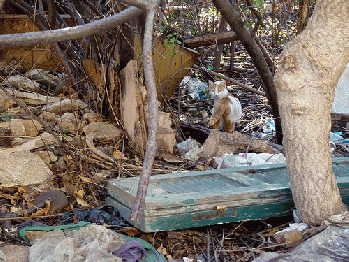Franklin Lamb, Oxford
Part I
Is Lebanon's economy heading for free-fall?
The growing list of US sanctions targeting Iran's Hezbollah in Lebanon and Iran's Revolutionary Guard Corps (IRGC) is only part of a broader American, Israeli and Western strategy of roll-back of Iran's activities in the Northern Middle East than one seeking direct military confrontation. Although the latter may be one of the unintended consequences as Iran begins to retaliate.
This week the U.S. Congress is working on two additional legislative initiatives to tighten sanctions against Lebanon's Hezbollah. The new sanctions include more cash bounties on Hezbollah leaders, as well as on Iran's Revolutionary Guard Corps (IRGC). The main concern in Congress is Iran's economic break-out and the Islamic Republics continuing hegemonic success in the region. Recently an Iranian official close to Supreme Leader Ayatollah Khamenei famously and accurately remarked, "Three Arab capitals [Beirut, Damascus, and Baghdad] have already fallen into Iran's hands and belong to our Iranian Islamic Revolution." The US Congress which regularly dreams up new sanctions apparently believes that the more money Iran and Hezbollah have, the more they will advance Iran's military and political success in the region, including claims on Capitol Hill of Hezbollah's escalating domination of Lebanon.
The latest sanctions are not likely to produce compromise or agreement but they will make it more difficult for Lebanon to apply breaks to its downward economic and political spiral. Economic pressure on many in Lebanon who support Hezbollah will increase. Naturally Lebanese sectarian party bosses worry about the sanctions effect on Lebanon's economy. This is partly because Hezbollah and its allies are deeply involved in Lebanon's banking system and the financial community is aware that Lebanon's economy cannot take much more pressure.

One of many problems that plague Lebanon's citizens is the inability of its government to provide basic services including water, electricity, and collect garbage
(Image by mayanais) Details DMCA
US sanctions targeting certain Lebanese "terrorists" are having an effect also on Syria's economy next door. The Central Bank recently issued a SYP 2,000 note (worth about $ 4) after US sanctions caused the Syrian Pound lo lose approximately 95% of its market value since 2011. The threats of US sanctions are also leading a number of Lebanese banks to reduce their operations with Syrian banks but so far they have not sold their shares.
Lebanon's' dominant political parties claimed on 10/14/2017 that they have "taken a clear decision to immunize the country from US sanctions and not to create a climate of escalation that would affect political stability. "There is no doubt that we should not underestimate the extent of the U.S. led sanctions pressure, but we are taking all the precautions to face this situation." a Parliamentary source explained. How precisely Lebanon's Parliament will do this was not explained but a four-point plan was agreed upon. First and foremost it calls for the current political leaders staying in power. Secondly "Preserving the (Michael Aoun Hezbollah chosen government), thirdly "maintaining the current political alignment", and lastly, alleviating the U.S. sanctions impact on the economy, by protecting Lebanon's security and stability."
But the ability of the Lebanese economy and banking sector to sidestep the ramifications of the sanctions will very likely continue to fail.
If Lebanon's sectarian parties allow next year's elections, the first in nearly a decade, it would be a step in the right direction. But past being prologue, if some Lebanese sects do not like the results of pre-election polling they will block the elections for another indeterminate period. Similarly, if progress is made towards developing a Lebanese hydrocarbon industry it could boost Lebanon's economic growth. A problem with this scenario is that certain Lebanese politicians are seeking to own a major chunk of any hydrocarbon industry likely to be established. Consequently, the ability of the Lebanese economy and banking sector to sidestep the ramifications of the sanctions will likely continue failing.
The absence of Lebanese public and international confidence in Lebanon's economy is also a major problem with respect to salvaging it. Lebanon's parliament on 10/17/2017 finally discussed the country's first state budget in 12 years. However, as MP Antoine Zahra pointed out: "Today we are discussing a budget for funds that have already been spent. We will authorize for the government what it has already authorized for itself." Former Lebanese Prime Minister Najib Miqati similarly told Parliament: "The magnitude of spending on public sector wages has become scary and it is consuming one-third of the state treasury." MP Khaled al-Daher of Akkar meanwhile pointed out that "had corruption been curbed, this budget would have been able to be LBP 5,000 billion lower."
The day before, Lebanon's political bosses some of whom were criminal warlords during Lebanon's civil war (1975-1991) and who in 1991 voted themselves total amnesty for their war crimes (in the final draft of the Amnesty Decree they crossed out "war crimes" and inserted "political crimes" and anointed themselves political lords for life) cut yet more deals to keep themselves in power. According to a 10/16/2017 report by Lebanon's National News Agency (NNA), "Lawmakers re-elected in only a ten-minute session, all parliamentary committees, their presidents, and members of the rapporteurs."
(Note: You can view every article as one long page if you sign up as an Advocate Member, or higher).





